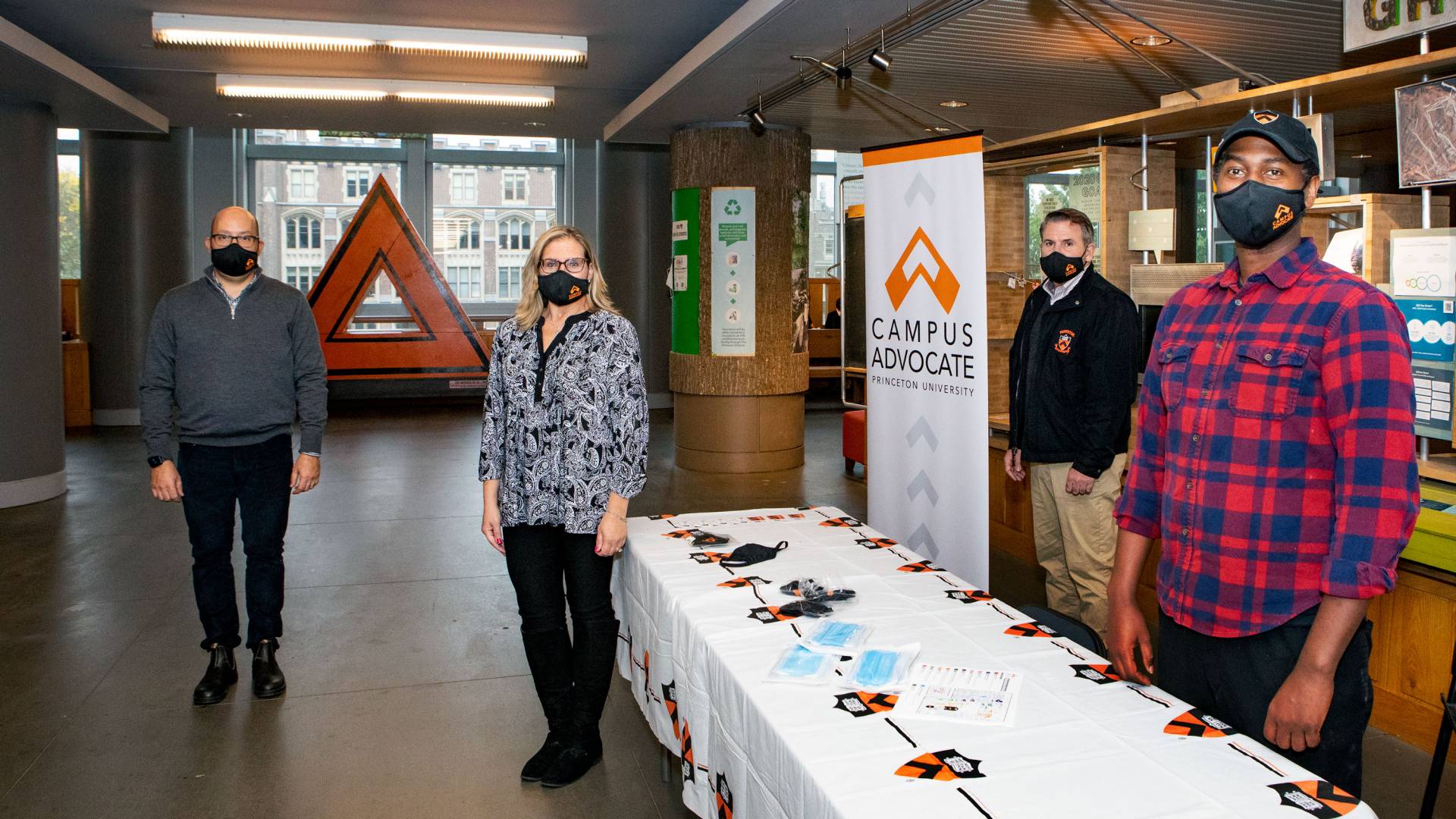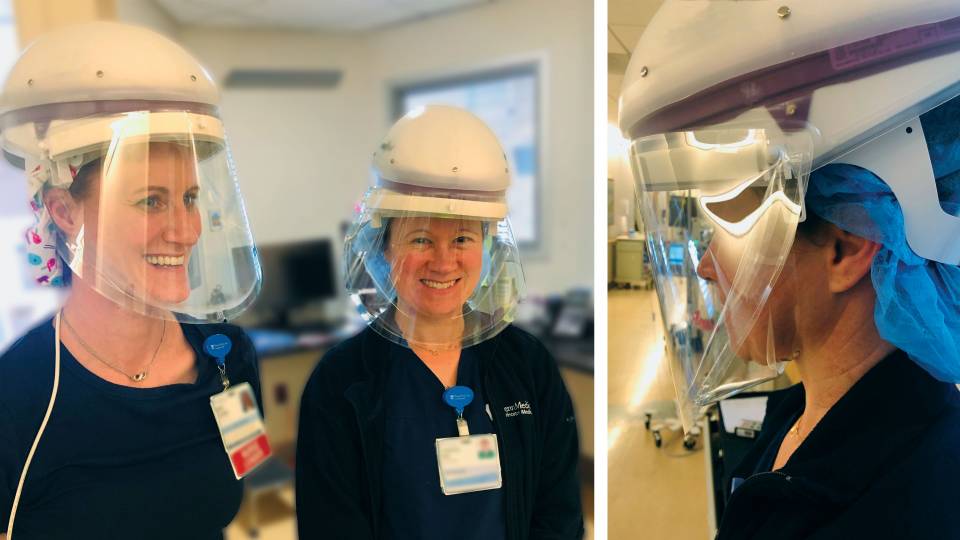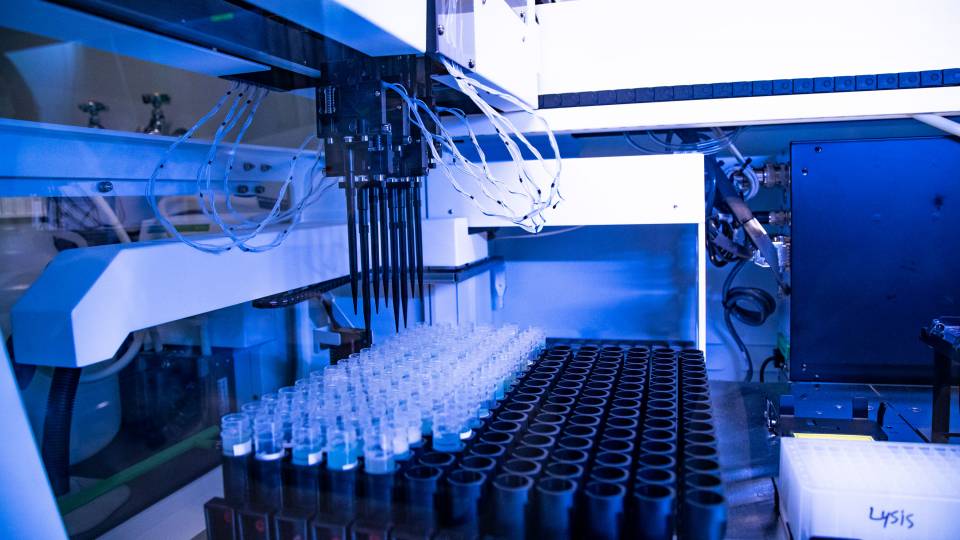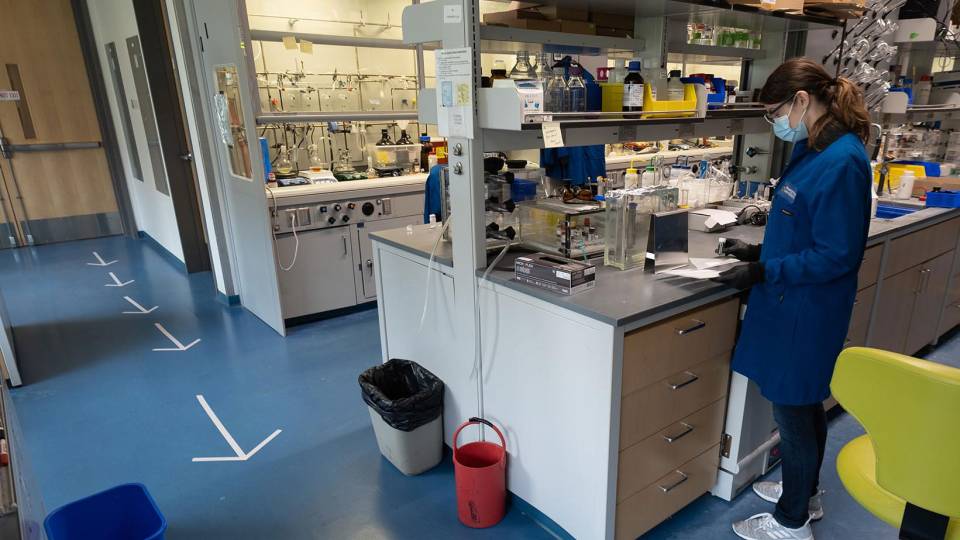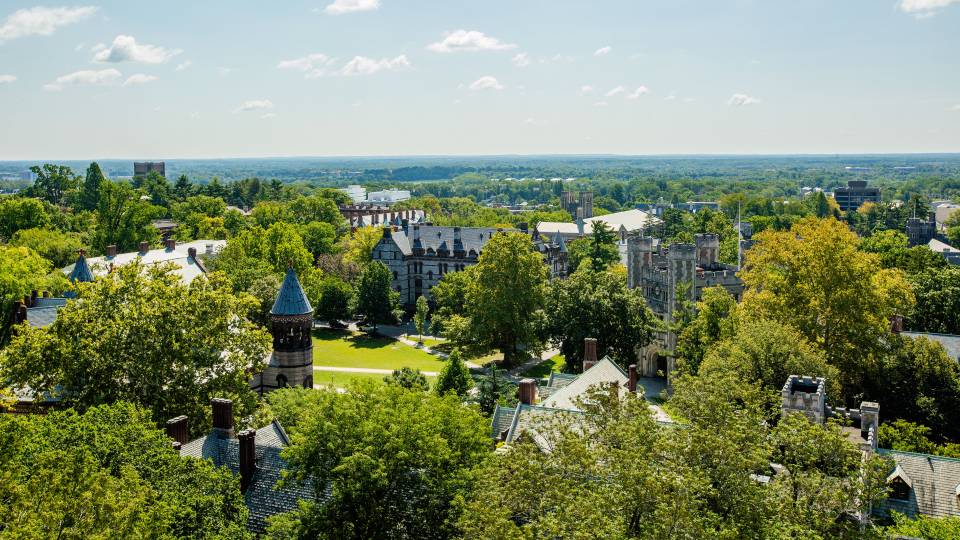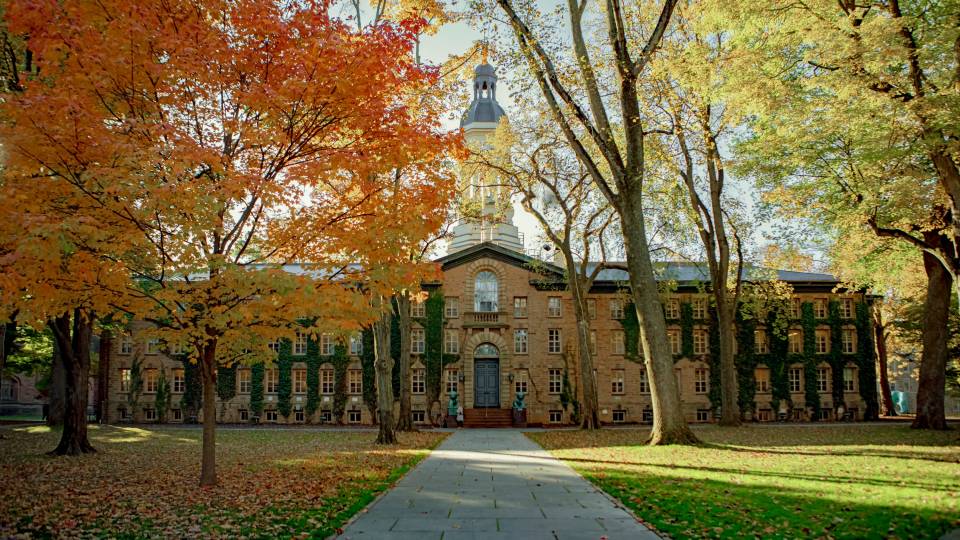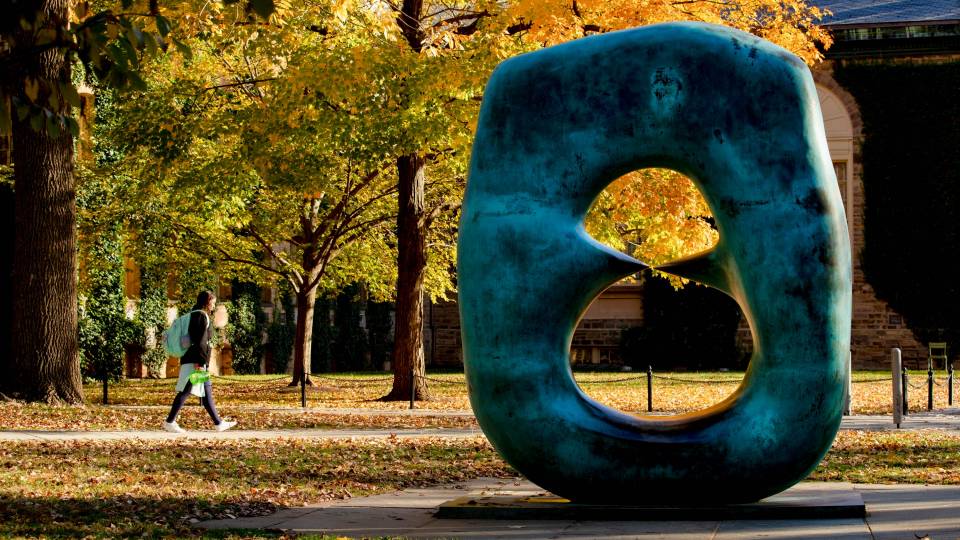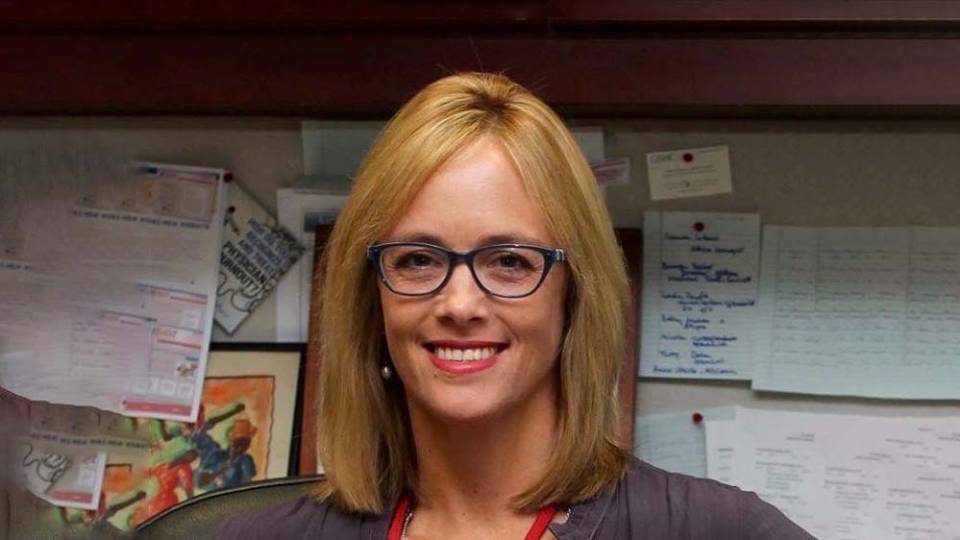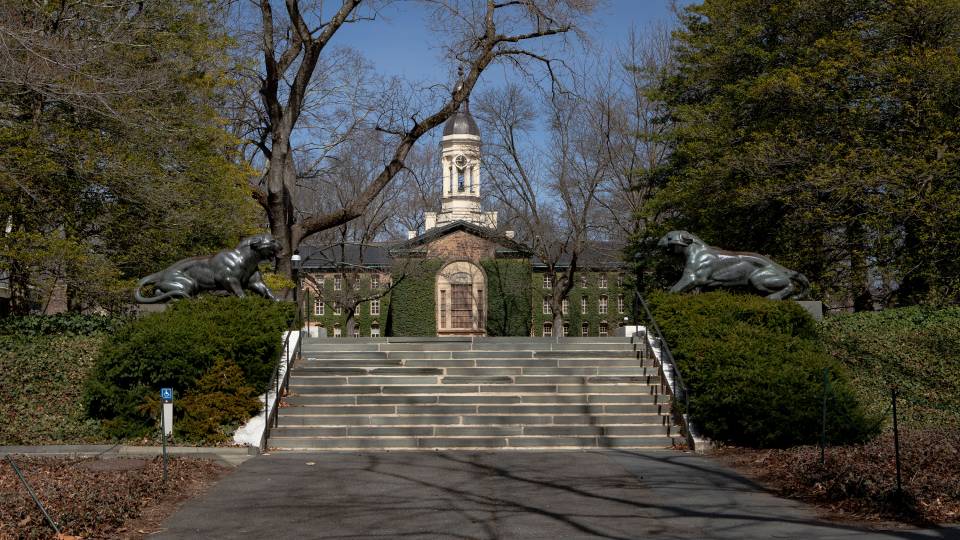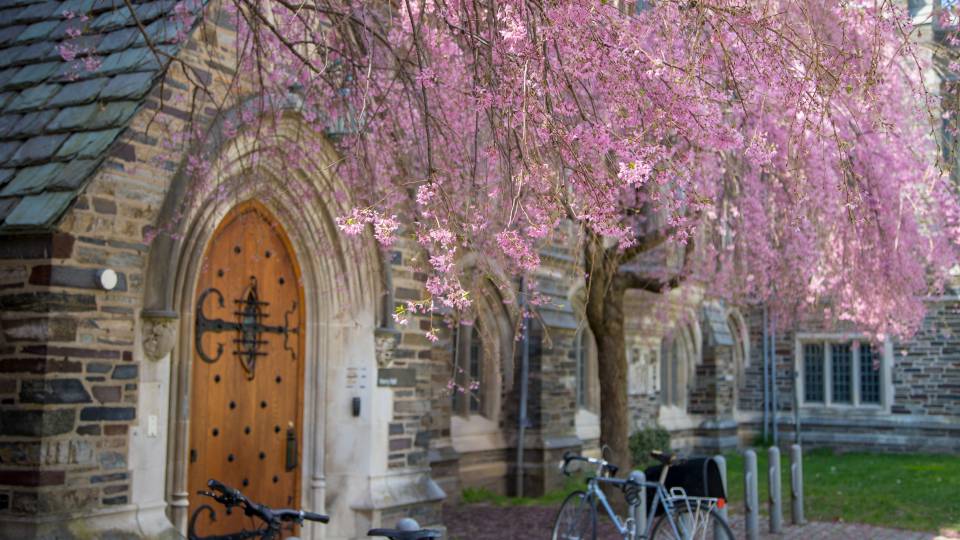Campus Advocates will work inside University buildings to educate faculty, staff and students about health and safety guidelines, such as wearing masks and staying six feet apart from others. Venue Services managers Vin Stanley (far left) and Risa Lemkin (second from left) helped devise the new program. Campus Dining staff members Greg Michels (second from right) and Devin Carr (far right) will be among the 100 employees serving as Campus Advocates starting Oct. 19.
Princeton’s new Campus Advocate program will help support a safe campus environment amidst the ongoing COVID-19 pandemic. Campus Advocates will work inside buildings to educate faculty, staff and students about the University’s health and safety guidelines.
The program will launch Oct. 19 with approximately 100 employees working as Campus Advocates. The staff have been redeployed from different University departments, including Campus Dining and Building Services.
“The Campus Advocate program is an educational and communication program to promote public health measures designed to protect our University community, as well as an effective redeployment opportunity for departments whose core work has been disrupted by the pandemic,” Executive Vice President Treby Williams said.
Pop-up information tables will be set up inside various buildings where Campus Advocates will distribute information and supplies, as needed. With an educational approach, the advocates will inform students, faculty and staff of the guidelines for using campus facilities, such as maintaining at least six feet between people and wearing masks.
The Campus Advocate program is administered by Venue Services, a unit within University Services.
“The goal of the program is to engage with our campus community, remind them of public health guidelines and support them in being on campus safely,” said Debby Foster, assistant vice president for University Services. “I believe the presence of our Campus Advocates will create a warmer, more welcoming environment for our entire campus community. The program will further help our community to feel comfortable and confident as the University continues to operate during this pandemic.”
Venue Services managers Vin Stanley and Risa Lemkin helped devise the new program and said Campus Advocates will offer several resources.
“We are there to provide information about Environmental Health and Safety’s COVID-19 guidelines, materials like hand sanitizer, disinfecting wipes and face masks, as well as a friendly face and casual conversation,” Stanley said.

Employees attend a Campus Advocates training in the Frist Campus Center Multipurpose Rooms. Campus Advocates are staff who have been redeployed from different University departments, including Campus Dining and Building Services. “We are there to provide information about Environmental Health and Safety's COVID-19 guidelines, materials like hand sanitizer, disinfecting wipes and face masks, as well as a friendly face and casual conversation,” said Venue Services manager Vin Stanley, who led the training session.
Campus Advocates will be stationed inside buildings that are accessible to the limited number of faculty, staff and students approved to be on campus this semester. Locations include Frist Campus Center, Firestone Library, the University Chapel, Jadwin Gym and Caldwell Field House, as well as lobby areas in some residential colleges and the Graduate College. All members of the University community must complete online COVID-19 safety training in order to use campus facilities.
The Campus Advocate program is part of broader University efforts to temporarily redeploy staff where needed. While some campus operations and activities have halted during the pandemic, other short-term and emergent needs have developed.
“Building Services’ mission is to support a clean, safe environment for the campus,” said Twyla Seward, director of Building Services. “Participating in the Campus Advocate program will be a continuation of the mission and passion that our custodians have for being part of the Princeton community.”
Smitha Haneef, assistant vice president for Campus Dining, said she appreciates her team’s continued efforts to keep campus operations running, such as serving as Campus Advocates. Two such team members, Greg Michels and Devin Carr, recently spent the afternoon at a Campus Advocate training with other employees in the Frist Multipurpose Rooms.
“This is a new program that goes along with these uncertain times,” Michels said. “I hope people will appreciate that Campus Advocates are there to educate our community in a hospitable way about the protocols that everyone should follow to stay safe.”
Michels, a catering hospitality manager, and Carr, a retail food service worker, said they are glad to pivot roles during the pandemic. For example, they also worked on the University’s Summer Food and Nutrition Program, which provided meals for local at-risk families, children and individuals through a partnership with the Princeton Public Schools and three area nonprofits.
“It was great to assist the local community this summer and I see the Campus Advocate program as an extension of that in a way. The goal is to help the campus community stay safe and healthy,” Michels said.
Carr, who has worked at Princeton for almost a year, said serving as a Campus Advocate has also been an educational opportunity for him.
“It really is a joy to be able to learn from other staff and meet new people at the University,” he said. “I feel lucky to work at a place that is going to great lengths to keep us employed during these uncertain times.”
